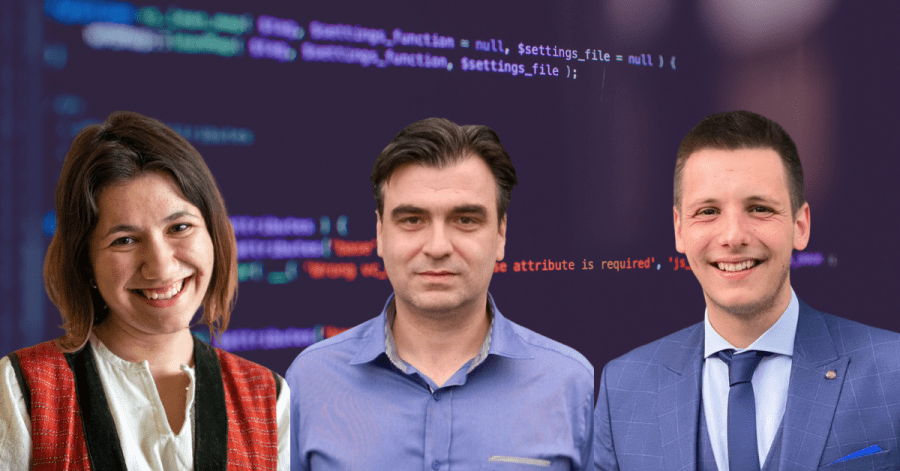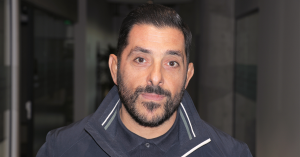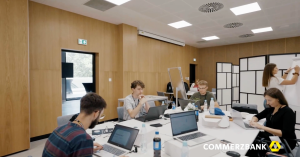One-third (31%) of European employees have changed jobs in the last two years. While 41% in the US say they are aiming to completely change the industry they work in. Most often, this means transitioning to the booming world of tech. Motivated by the opportunity for better work-life balance, higher salaries, and attractive company culture, people of all ages and backgrounds are making a 180-degree career change to IT. Usually starting from scratch.
Although such a career transformation seems risky and quite difficult, the following stories of three software engineers prove otherwise. All three of them are graduates of the IT training program Telerik Academy which helps students and young professionals improve their digital skills or kickstart a career as software engineers.
Stefan Petrov graduated from the Telerik Academy with Java in 2019. He was 42 at the time of the training and had more than fifteen years of experience as a mechanical engineer in various fields: from mega-yacht building to designing process systems for power plants and factories. Why would he enroll in an IT training program? His daughter was part of the Telerik School Program for high school students and this ignited his interest in programming.
Nia Tsaneva is 26 years old and graduated from the program a few months ago. She has a degree in English Language Studies but has never worked in a field that was closely related to her major. For some time she worked in customer and tech support which awakened her excitement for technology.
Velislav Tsenov is also part of the last cohort of the Telerik Academy. A 24-year-old from Northern Bulgaria, upon graduation from university, he briefly worked as a business consultant in the energy company, ROITI. “Programming and technology have always been my passion – ever since I was a kid and tried to feed a cassette-player with soup,” he jokes.
Why did they decide to make a career change to IT, how did they make the transition, and what did they learn along the way – see in the interviews.
The Recursive: When and why did you realize you needed a career change? Why did you go into the IT industry?
Stefan: Discovering my passion for programming at 42 years old, I consider myself a late bloomer. What excited me about the opportunity to transition, was the fact that the IT industry constantly evolves. This encourages IT professionals to grow within the industry. I like to think of my work as a software engineer as a project with Lego bricks. There is a great sense of personal pride and a sense of accomplishment in seeing how different pieces come together to form a useful product or tool.
Nia: While working as tech support, I became interested in how things happen on the other side. I started with online courses for beginners and found that programming was interesting to me. I knew about Telerik Academy for a long time and decided to apply there.
Velislav: To some extent, I already worked in the IT industry, but not directly. I was working with the DevOps team for one of our clients and I was learning a lot by simply following the processes. I am glad I ended up in a team where I worked with different interfaces and systems because it helped me form a deep interest and understanding of technology.
What were the biggest challenges you faced and lessons you learned?
Stefan: Changing careers for the most part means starting over. Having worked as a mechanical engineer for fifteen years and now as a software engineer for three years, I feel there is a change in the scope of my professional experience. The transition itself is a huge leap out of your comfort zone. But what is worth keeping in mind, is that staying in our comfort zone is not valuable in the long term as it prevents us from developing our skill sets.
Nia: I think I had the hardest time at the very beginning of my training when I was first faced with concepts that were completely unknown to me. I learned that I shouldn’t give up when I’m interested and I’m determined to achieve something. Of course, the support of friends and family is also very important at this initial stage.
Velislav: I have not yet fully entered the working environment of software engineering, so until now the biggest challenge for me was the very decision to enroll in IT training. The most important lesson I learned along the way is that when you face a difficulty it is very important to think about why you started and where you want to go.
Did your previous experience and skills help you in your new role?
Stefan: Changing careers in another field does not mean that you have to abandon all your professional skills. The hard and soft skills you already possess have value wherever you go.
Nia: Definitely yes. On the one hand, my work as tech support helped me navigate the field and learn some basic things. On the other hand, the university helped me to be consistent in my studies and built my ability to focus for long periods of time, which is definitely needed in the industry as a whole.
Velislav: My previous experience largely contributed to my successful career transformation. The work of a developer requires you to be able to work in a team – to communicate with colleagues and clients and to know how to prioritize certain tasks over others. Being able to communicate with a lot of people in my previous position helped me build soft skills. Thanks to this, I can now effectively work on solving problems and seek and accept feedback.
What advice would you give to someone thinking of making a career change to IT?
Stefan: If you suspect that your current career path doesn’t match your interests, passion and potential, try to observe your skills. This is how you would identify what you need to change and learn in order to make a successful career change.
Nia: Go for it! There is nothing to lose, even if during the training you realize that this is not for you.
Velislav: Be persistent.
And what is your current position? Was it hard to find this job and get used to it?
Stefan: I am currently working as a full-stack developer (Java, Angular). Finding a job in the IT industry was not difficult for me, and the Academy has an extremely important role in this process. I think my dedication and passion for learning helped me a lot.
Nia: I am currently working as a Junior Software Engineer at Gtmhub. Finding a job after the training happened quite quickly, after one intense week with several interviews. Of course, I still have a lot to learn, but I have wonderful and supportive colleagues who help me, which is very important for a Junior.
Velislav: This week I start working as a front-end software engineer (Angular) at Gtmhub. I can’t wait to embark on this adventure and find out how one of the best software products in Bulgaria is built. The job search process itself was relatively short, luckily for me. I owe this to the Telerik Academy partner network of technology companies.
This article is part of a joint project between DEV.BG (The Bulgarian Tech Job Board) and The Recursive.







